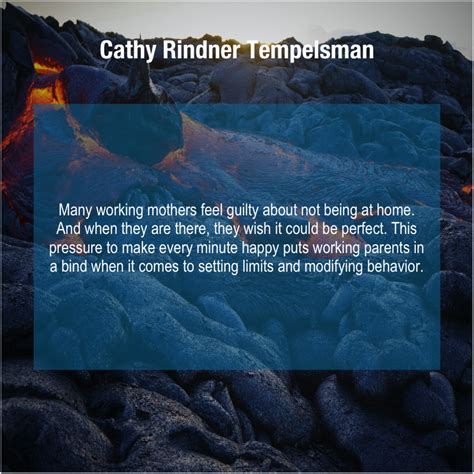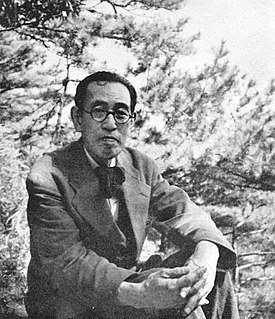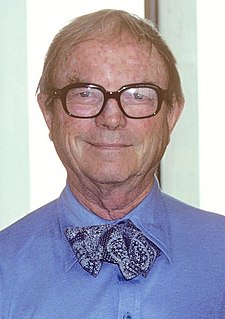A Quote by Cathy Rindner Tempelsman
Be aware that the more often a child hears the word no, the greater his need to say no himself.
Related Quotes
At one year of age the child says his first intentional wordhis babbling has a purpose, and this intention is a proof of conscious intelligenceHe becomes ever more aware that language refers to his surroundings, and his wish to master it consciously becomes also greater.Subconsciously and unaided, he strains himself to learn, and this effort makes his success all the more astonishing.
"The first awareness of the child comes with his ego. He becomes aware of the "I", not of the Self. Really, he becomes aware first of the "thou". The child first becomes aware of his mother. Then, reflectively, he becomes aware of himself. First he becomes aware of objects around him. Then, by and by, he begins to feel that he is separate. This feeling of separation gives the feeling of ego, and because the child first becomes aware of the ego, ego becomes a covering on the Self. "
Solitude is the profoundest fact of the human condition. Man is the only being who knows he is alone, and the only one who seeks out another. His nature - if that word can be used in reference to man, who has ‘invented’ himself by saying ‘no’ to nature - consists in his longing to realize himself in another. Man is nostalgia and a search for communion. Therefore, when he is aware of himself he is aware of his lack of another, that is, of his solitude.
I believe that man was created to enjoy himself, indeed, that he can claim it as his legitimate right. In fact, as long as he lives, man cannot help enjoying himself, even if he tries not... . Today the average person, when he hears the word pleasure, immediately thinks of something immoral. But nothing could be more wrong.
In this modern world where activity is stressed almost to the point of mania, quietness as a childhood need is too often overlooked. Yet a child's need for quietness is the same today as it has always been--it may even be greater--for quietness is an essential part of all awareness. In quiet times and sleepy times a child can dwell in thoughts of his own, and in songs and stories of his own.
There are clear differences between child and adult artistic activity. While the child may be aware that he is doing things differently from others, he does not fully appreciate the rules and conventions of symbolic realms; his adventurousness holds little significance. In contrast, the adult artist is fully cognizant of the norms embraced by others; his willingness, his compulsion, to reject convention is purchased, at the very least, with full knowledge of what he is doing and often at considerable psychic cost to himself.
A man may go into the field and say his prayer and be aware of God, or he may be in Church and be aware of God; but if he is more aware of Him because he is in a quiet place, that is his own deficiency and not due to God, Who is alike present in all things and places, and is willing to give Himself everywhere so far as lies in Him... He knows God rightly who knows Him everywhere.
A person is either himself or not himself; is either rooted in his existence or is a fabrication; has either found his humanhood or is still playing with masks and roles and status symbols. And nobody is more aware of this difference (although unconsciously) than a child. Only an authentic person can evoke a good response in the core of the other person; only person is resonant to person.
To admit the existence of a need in God is to admit incompleteness in the divine Being. Need is a creature-word and cannot be spoken of the Creator. God has a voluntary relationg to everything He has made, but He has no Necessary relation to anything outside of Himself. His interest in His creatures arises from His sovereign good pleasure, not from any need those creatures can supply nor from any completeness they can dring to Him who is complete in himself.
But somewhere, a child surprises himself with his endurance, his quick mind, his dexterous hands. Somewhere a child accomplishes with ease that which usually takes great effort. And this child, who has been blind to his past, but his heart still beats for the thrill of the race, this child's soul awakens. And a new champion walks among us.
'Greater love has no man than this that a man lay down his life for his friends' (Jn. 15:13). In truth if someone hears an evil saying, that is, one which harms him, and in his turn, he wants to repeat it, he must fight in order not to say it. Or if someone is taken advantage of and he bears it, without retaliation at all, then he is giving his life for his neighbor.
































